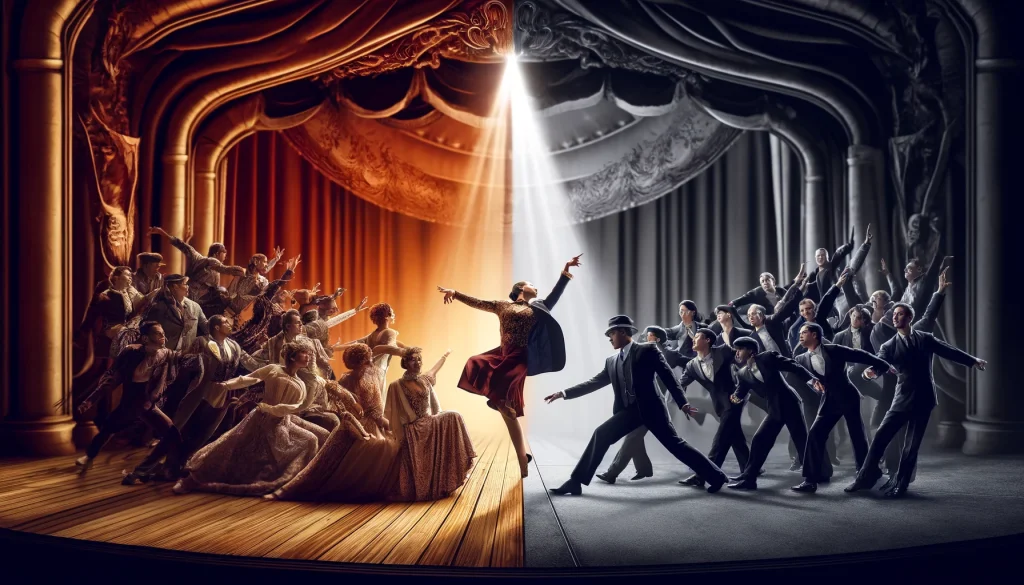So, you’ve got your website up, but now you need content for it! (Don’t have your website up? Read this starter guide!)
Before you start designing your site, spend some time searching through others’ sites and find ones that you like, so you can borrow ideas from those sites. For example, here’s a site I designed for composer Ricky Ian Gordon. The Peabody Conservatory has also curated a list of sample strong websites that you can find here. Looking through his site could help composers come up with ideas for what they want on their own sites!
Overview
In this guide, we’ll cover:
- Recommended components for a musician website
- Recommended WordPress themes and plugins
- Common mistakes to avoid
Recommended Website Components
In this section, we’ll look at what content you should include on your website.
Recommended Pages
Generally, musicians want to have these pages on their sites:
- Landing Page: A landing page is the page people reach when they first visit your website. It usually contains a menu to the rest of the site, social media, and featured items (like upcoming concerts, a headshot, a press quote, quick listening to your latest releases, etc.). Here’s how to set up your homepage in WordPress.
- About Page: A page that has your biography and headshot. You can also include links to key pages and downloads for a press kit, headshot, and/or résumé/CV.
- Latest News: Having a page with your latest news can help viewers find recent information about your concerts and accomplishments.
- Calendar: A page with a list of upcoming and past performances, including contact information.
- Discography: A page listing your published recordings, with links to buy and stream them.
- Media: A page with audio and video files. Only post your strongest work here.
- Contact: A page with contact information for you and/or your agent. You can include a contact form or post your email address. If you use a contact form, use Recaptcha to make it resistant to bots to minimize spam. Also, set up a rule in your inbox so that these messages don’t go to spam. If you post your email address, you’ll likely get a lot of spam. Some stick with contact forms for this reason or post their email as an image of the text with no hyperlink to make it harder for bots to scrape it. Also include links to your social media, streaming sites (YouTube page, SoundCloud page, etc.)
- Rep/Works List: If you’re a composer, include a list of your works with links to pages for each work on your site. If you’re a performer, include your repertoire list on your bio/about page or as a separate page on your site.
- Shop (Optional): If you want to sell merchandise or handle your own ticketing, build that into the site.
Recommended Themes and Plugins
Themes
For WordPress sites, you need to start by picking a theme, which creates the general look and feel of your site on the front and back end. You can learn how to find and install a theme in this WordPress tutorial. I always use Divi from Elegant Themes. It’s the most popular WordPress theme and has the benefit of coming with a powerful builder tool and a marketplace filled with plugins designed to integrate into Divi. That said, there are myriad free and premium themes available!
Plugins
WordPress plugins can be used to add functionality to your website or to simplify complex tasks. If you use Divi as your theme, there are a large number of plugins designed specifically for it. WordPress comes with default plugins, but you can acquire additional free or premium plugins for WordPress that can be installed.
- WordPress default plugins and how to find and install new ones
- Elegant Themes Marketplace for Divi-based plugins
Here are some categories of plugins to consider:
Media Plugins
You can use external sources, like SoundCloud and YouTube for your audio and video and then embed them directly into the site. You can also import an audio file and have it play on your site directly. If you type a YouTube URL into a WordPress site, it will typically auto-convert it into an embedded video. WordPress also has a built in audio player that will be created if you input an mp3 (or other audio) file. Some people use plugins to create playlists, customize the look of the player, and more. For multiple videos, a video plugin like Divi Video Gallery (for use with the Divi theme) will keep them organized and clean looking while reducing load times.
Calendar Plugins
To create an events calendar, there are many options. Many people use The Events Calendar plugin, which includes a free version with limited features and a premium version with additional features. Those working in a Divi environment can consider supplementing this with the Divi Events Calendar Module, which allows for further customization of The Events Calendar plugin.
Merchandise Plugins
Most websites that do online sales use WooCommerce, a free plugin for setting up shops on websites. A number of plugins also exist for extending the capabilities or improving the visual appearance of WooCommerce. (Another popular platform that isn’t free is Shopify.)
Module & Feature Plugins
A number of plugins exist that allow you to create appealing looking features on your site. You can search for individual plugins or buy packages, such as Divi Plus, which adds some powerful features for Divi and WooCommerce.
Site Optimization Plugins
There are numerous available plugins to improve SEO (search engine optimization), cache utilization, security, and functionality. Here are a few popular examples:
- Jetpack for site functionality and security
- Yost SEO for SEO
- WP Rocket for caching and improving page load speeds
Common Mistakes to Avoid
Here are some common WordPress mistakes to avoid:
- Backups: Don’t forget to set up backups for your site. You don’t want to lose all that work!
- SSL: Some browsers will throw up warning messages for people trying to visit your site if you don’t have a secure connection, so buy and install an SSL certificate. Set up your website to forward automatically from http to https.
- Auto-Play: Don’t have audio or video audio auto-play when someone visits your page. Many people find these annoying and if they’re too loud, you might even anger visitors to your site.
- Menus: Don’t make it hard to find things. Put up a menu (with submenus if needed) to find content.
- Text Heavy: Don’t make your site text heavy. A blog, like this, is usually pretty text heavy. That doesn’t work well for a website. Keep it mostly visual.
- Multiple Clicks: Don’t make people click through too many things to find the most important info. Assume that you’ll lose some of your viewership with each click and keep it minimal.
- High Res Photos: Don’t use high resolution photos; they’ll slow your website too much. Shrink photos to smaller sizes and save them in formats, like *.webp, that keep the file size small while retaining quality and transparency of your images.











0 Comments